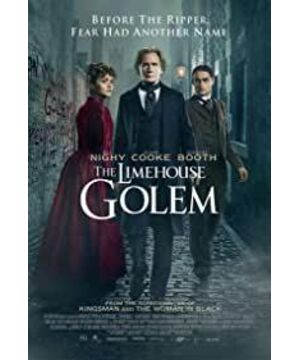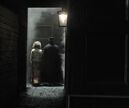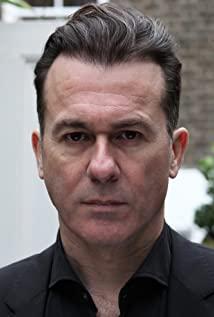I love this movie so much, and I think it's underrated. Secondly, after reading all the long reviews, I felt that there was no strong resonance, so I expressed my feelings. This is my first time writing a review, and I really like this movie.
I will start from the ending that everyone is more tangled, that is, the ending of the heroine Lizzie.
The conversation between the detective and the patrolman after burning down the confession paper written by the heroine in front of the fireplace is one of my favorite parts of the whole film.
The words between the patrolman and the silent police detective present a wonderful and wonderful dislocation. The little policeman didn't know the truth. He was comforting the detective that he could prove the heroine's innocence, even if she immediately died on the gallows.
You are about to toast of London,John.
I know how much you care for her.
Just know how grateful she would be that the world will know what her bastard husband really was.
Not just a murderer, but as a man who sought to deny her all she wanted to be.
It's you who saved hr honor. Her memory. It's you who saved her honor, her memory
She would've wanted you to have this.
During this period, the detective has been staring blankly ahead, looking very struggling and suffering.
He understood what the mistress was thinking. He looked shocked and distressed. But at this time, the detective was not shocked by the lies of the heroine who had confused him before, he was struggling. I think the detective has two points where he struggles.
First, detectives are struggling to uncover the real culprit.
At the beginning of the film, the murderer left a blood letter on the wall that seemed to provoke the police:
"The truth has a habit of sticking in the mind. Those who fail to prevent injustice are as guilty as the perpetrator." The truth always hides. Those who fail to maintain justice are just as guilty as murderers. The first sentence is finally a prophecy.
But at the same time, it also stings the detective: the detective is guilty of not revealing the real culprit. This sentence is deliberately left by the heroine to the justice police officer who exposed her masterpiece.
The second point is that if Lizzie's identity as a murderer is not revealed, the detective will be the one who deprives Lizzie of her honor, just like the countless men who deny her in the tragic life of the heroine. Obviously, the police detective is a person who respects women. As you can see from the film, he does not recognize the public who do not respect women. It is his respect that makes him willing to find the truth for the heroine; he also does not recognize the man who fantasizes about being the savior of the world. - He scoffed at writers like John cree and married stepdaughters. But in the end, he has to be the man who takes away Lizzie's "honor". To be what he hates.
After listening to the last sentence, the detective suddenly withdrew his hand. He decided not to help the twisted heroine realize her abnormal dream, and was deeply disgusted by the so-called honor. It was the honor that the heroine was obsessed with, and countless innocent citizens died tragically.
When Lizzie was hanged for the second time,
Lizzie: No! We must wait for him, please.
I am not a poisoner. I am so much more I'm way better than that.
Lizzie wants to let the world know that she is not a small character, she wants to leave her name on the stone and become famous.
The screen cuts here -
When the bearded policeman was on the gallows, he told the media that "there will be a report on john cree in an hour, and the citizens of London can sleep in peace". It means that the detective announced to the public that the murderer was playwright John Cree, and he didn't let the evil heroine's twisted purpose come true. He knew that was what Lizzie wanted most, but he didn't.
"The murderer is no more" is also true, because the detective knows that at this moment, the real murderer is on the gallows.
No one watched Lizzie's final hanging scene and lines, just as no one knew who she was in reality. But she was probably happy to die with happiness. Because she believes that the detective will accomplish the mission of "recovering her honor" - revealing her murderous masterpiece.
But the reality is the opposite, which is embarrassing. I thought this was the best punishment for her committing such a heinous crime, for whatever reason. But on the other hand, a woman who has been oppressed all her life, Lizzie, with such extreme methods, her crazy attempt to gain her own value is still erased. As John Cree said, there is no stage for lady. She still didn't get her serious actor role, too ironic.
In the final minutes of the film, the final chapter of the misery junction is staged in the theater, instead of overwhelming coverage: a crazy female murderer. Lizzie finally wanted to carve her name on the stone, but unfortunately, in the end, she was still just a clown in a small theater, just a from clown, and was soon forgotten after dinner.
Now watch the whole movie.
There are actually three lines in the whole film, the first is the line of police detective investigation that happened in reality, the second is the line narrated by Lizzie, and the third is the misery junction in the theater. During this period, the real situation was added, and the real situation was presented in the heroine's own flashback. It's a pity that this could have been a better place to play, but the explanation is a bit too messy and difficult to sort out. Audiences get lost easily.
The contents described in the killer's book, such as "the first time on stage" and "hope to remember the name forever", overlap with Lizzie's lines.
By appearing at the same time as the real line screen of the heroine, it is gradually revealed that the heroine is the owner of this note, so that the audience can enjoy the fun of revealing the truth of the incident. We and the detectives are actually synchronized and information is shared.
And the film also completely depicts the background of how a low-level girl becomes an evil murderer. The twisted and pitiful experience gives Lizzie full motivation. This is what the audience wants.
It can be seen that the director wants a lot, wants to express and conceal a lot, and wants to bring a lot of fun to the audience, but some of them are too much and messy, and they lose their focus and their due brilliance.
This film lacks the brightest focus. The matter of "who is the real murderer" is not what everyone is most curious about and the director wants to show the most. But apart from this incident, other events are too scattered.
In fact, there is still a lot to write about, such as society's prejudice against women, the perverted process of the heroine, etc., but I will write it here for the time being.
I will brush it again. The above is just a little personal opinion. Welcome everyone to discuss.
View more about The Limehouse Golem reviews











